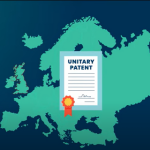
The UK Intellectual Property Office (UK IPO) has issued a new Tribunal Practice Notice (TPN 2/2023) with a potentially significant impact upon UK rights acquired through the Madrid Protocol (for trade marks) or Hague Agreement (for designs).
TPN 2/2023 has the good intention of looking out for rights holders based outside the UK, who might have their rights challenged by third parties but do not promptly become aware of that because they have no valid UK address for service recorded for their UK designations in International registrations. However, as explained below, the same TPN brings about an even shorter period for reaction than previously, if rights holders are to be able to defend their UK rights in the face of such a challenge.
A “valid UK address for service” is one in the UK, Gibraltar, or the Channel Islands. Previously, for challenges to registered/protected UK designations in International registrations without a valid UK address for service, the UK IPO would issue documents to the non-UK address for the holder and would deem such action to constitute “effective service” for the setting of an inextensible period to file a defence (with this period being two months to submit a defence in response to a challenge upon a trade mark designation).
The MARCO POLO case
TPN 2/2023 has been issued by the UK IPO as a result of the decision of Geoffrey Hobbs KC, sitting as the Appointed Person in Tradeix Ltd v New Holland Ventures Pty Ltd (BL O/681/22) – the MARCO POLO case.
The MARCO POLO trade mark was protected in the UK as a designation in an International registration secured through the Madrid Protocol. A declaration of invalidity of that UK designation initially succeeded because the trade mark holder did not file a timely defence. The trade mark holder did not have any UK address for service recorded, so the invalidity application was communicated by post from the UK IPO to the trade mark holder’s registered office in Australia. The Australian address was that of the holder’s accountants and due to COVID restrictions and work from home requirements, the holder did not become aware of the challenge on its UK designation in time to submit a defence. Absent a timely defence, the UK IPO declared the UK designation invalid and directed that it be removed from the Register of Trade Marks and deemed never to have been made.
The holder appealed to the Appointed Person, who found that posting of documents to a non-UK address, as had been the UK IPO’s previous practice, had not constituted valid service of those documents upon the trade mark holder. This has led to the change of UK IPO practice described below.
The new UK IPO practice – TPN 2/2023
TPN 2/2023 sets out the changes of practice in the Registrar’s service of documents in inter partes trade mark invalidation, revocation, rectification and opposition proceedings, and registered design invalidation proceedings. It is most relevant to UK designations in International registrations, but does not impact ex parte proceedings, such as new UK designations under examination, where a UK address for service will not be required unless a notice of provisional refusal is issued to which the holder wishes to respond.
There are two new approaches, dependent on the type of proceeding before the UK IPO:
(1) Invalidation, revocation on the grounds of non-use, revocation on grounds other than non-use, and rectification
Absent a valid UK address for service, a preliminary letter will be issued by the UK IPO in the above types of proceeding, requiring the holder to provide a valid UK address for service within one month, together with confirmation that it intends to defend its right. Said letter will be posted by Royal Mail Signed-For service, using whichever non-UK contact details are available to the UK IPO at that time. This could be to the holder themselves but, if a non-UK representative address is given, the UK IPO will use those representative details in preference to the holder’s address.
If the holder provides a valid UK address for service within the set period, the action will be served to the address of the (newly recorded) valid UK address for service, then the usual period for defence, e.g. of two-months to defend a trade mark right, will run from the date of effective service to the UK address. If the holder does indicate a wish to defend the right within the initial one month set but does not provide a UK address for service in that time, they will be given one month to record a UK address for service.
If no valid UK address for service is provided within one month and no indication of a wish to defend, then the UK IPO will issue a letter confirming their intent to treat the right as undefended and to invalidate or revoke it. Again, this letter would be sent to the non-UK address, with a fourteen-day period for reply. Failure to respond would result in the UK IPO issuing a short decision on the undefended application and could lead to invalidation or revocation.
(2) Trade Mark oppositions against published International Registrations (UK)
In oppositions to UK designations in International trade mark registrations, a notice of provisional refusal will be sent by the UK IPO to the World Intellectual Property Organisation (WIPO), who will in turn notify the holder. The transmission to WIPO is deemed effective service of the opposition and would not at that stage require the holder to appoint a UK address for service. Additionally, the UK IPO will issue a letter to the holder using any non-UK address for service details provided by WIPO: this will require a defence within an already activated two-month period and will also confirm that a valid UK address for service will be required to contest the opposition and engage beyond submission of an initial defence. If a defence is filed, but with no valid UK address for service, the UK IPO will then require appointment of such an address for services within one month.
NOTE – for UK trade marks or registered designs cloned from an EU right at the end of the Brexit transition period:
If the target of challenge is a comparable trade mark or design created out of an EU right which was in force at the end of the Brexit transition period, and if proceedings are launched prior to 1 January 2024, the above new practice will not apply, and service will be effected via any EU address for service provided in the data imported from the original EU right.
Comment and recommendations
This new practice, though well-intentioned, sets an even shorter period than previously for the holder of a UK designation to react, should a challenge be made to their registration, and if they do not have a valid UK address for service. Although preference would be given by the UK IPO to sending initial notification of the challenge to a representative recorded at WIPO, rather than to the holder themselves, a single month is a very short period for that notification to reach a representative outside the UK and be acted upon, with them to quickly arrange appropriate UK representation.
Risks posed by the TPN could be easily mitigated, and future requirements promptly satisfied, by appointing a valid UK address for service as early as possible, rather than waiting for any challenge to be encountered where vital deadlines might be missed.
Wherever questions are raised relating to validity of a right in the UK, local advice and representation is crucial, and Two IP’s Chartered UK trade mark attorneys are well qualified to help you. Get in touch here or email hello@two-ip.com.





